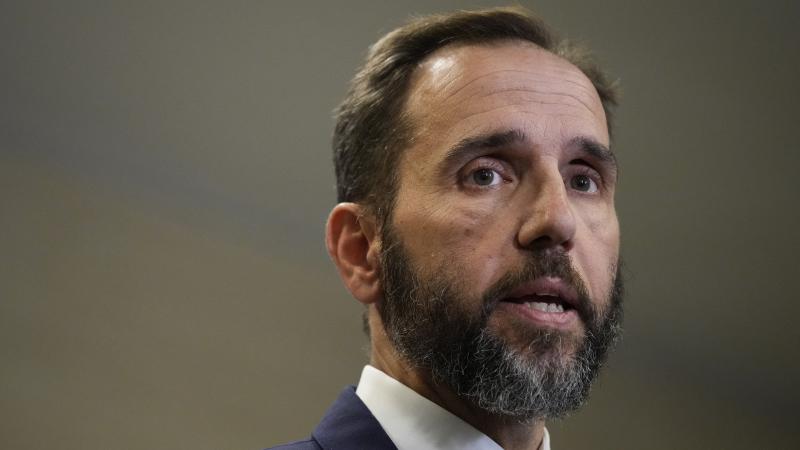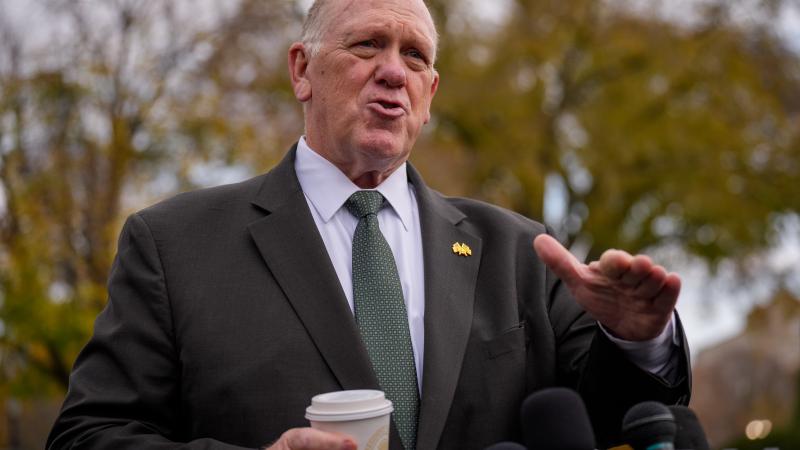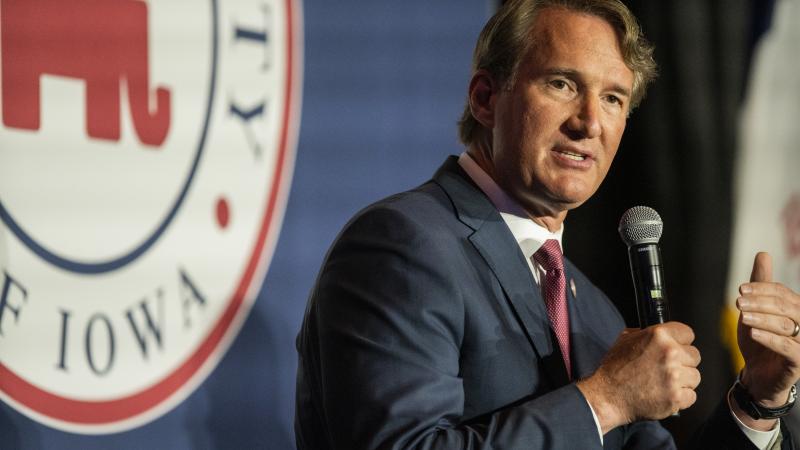State legislatures battle over parental rights, gender procedures
Republicans argue gender procedures are detrimental to children's health and parental rights are often undermined.
State legislatures across the country this year have debated parental rights in reproductive care and gender-related procedures for children.
Democratic state lawmakers have sought to protect gender treatments or procedures, in some cases for minors, arguing they're critical to a child's health care. Republicans argue gender procedures are detrimental to children's health and parental rights are often undermined in the process.
Matt Sharp, director of the Center for Legislative Authority at Alliance Defending Freedom, a conservative legal group that often litigates on behalf of parental rights, says states are moving in the opposite direction on gender and parental rights.
"We've seen a growing number of states genuinely concerned about children in their state and the harm that these puberty blockers, hormones, surgical procedures are doing to these children," he told The Center Square. "They're looking at studies coming from Europe, from Sweden, from England, from other countries showing that there are several long-term consequences to a kid's mental health or physical health, higher rates of suicide, and so these states are taking up the mantle of their children and saying, 'we want to protect children from these harmful procedures and are looking to pass legislation to do so.'"
Colorado, a state controlled by a Democratic majority, recently passed a law that allows health care providers to "furnish contraceptive procedures, supplies … without notification to or the consent of the minor's parent or parents."
The debate of gender procedures for minors versus parental rights is sometimes tied to a broader debate surrounding abortion in the wake of Roe v. Wade being overturned by the U.S. Supreme Court.
Another new Colorado law, Senate Bill 23-188, shields abortion providers from being sued by people out of state.
"The Supreme Court's decision to overturn Roe v. Wade unleashed a wave of anti-abortion legislation across the country, and it's putting Coloradans' ability to access critical reproductive and gender-affirming care in jeopardy," said state Sen. Julie Gonzales, D-Denver, a sponsor of SB 23-188. "Any barrier to health care in our state is unacceptable and puts lives at risk. This bill will protect the people who both seek and provide that care in our state, and will ensure that Coloradans can continue to access the life-saving care they need to thrive."
Republicans in the state argued the new laws would allow minors to get abortions without parental consent.
"The bills signed into law today by the Governor pose a huge threat to parental rights and the well-being of our children," said Assistant Minority Leader Rose Pugliese, R-Colorado Springs. "It is egregious to permit a 12-year-old child to get an abortion without her parents' knowledge or consent. It is reckless to expand access far past the point of reasonable or safe bounds."
The split between parental rights and gender or reproductive care has played out similarly in other states like Washington and California.
In Washington state, the Legislature passed a bill allowing shelters to house runaway juveniles seeking abortions or "gender-affirming care" without notifying parents. California is considering a similar bill.
The Washington LGBTQ Caucus said it will "continue to fight for the rights and freedoms of all our LGBTQ+ neighbors, ensuring everyone – no matter their age or gender identity – receives the care and support they need to thrive and be exactly who they are."
Sharp warned that Washington and other states are leaving minors vulnerable to clinics that are motivated by profit and do not care about a child's long-term interest.
"I think states really ought to be wary about going down this path of pushing kids toward gender transition, of keeping parents out of the loop, because it could ultimately expose doctors, gender clinics and others in the states that are pushing this bad medicine, this bad science on kids," Sharp said. "It could expose them to a lot of potential liability."
UTAH
Utah became the first state this year to ban child gender modification procedures. A new law passed in January prohibits those under 18 from getting puberty blockers and gender-affirming surgeries in the state.
TEXAS
The Texas House and Senate passed measures banning child gender modification procedures. The measure passed after multiple attempts were made by Democrats to kill it in the House and after protestors disrupted House proceedings and were arrested. Despite the protests, the bill passed with bipartisan support. If signed into law, it would prohibit procedures and treatments for gender transitioning or gender reassignment from being performed on minors.
FLORIDA
Gov. Ron DeSantis signed bills into law that ban gender-affirming care for minors and prohibit minors from attending drag shows. "Educators in Florida are expected to teach our standards, and not interject their own opinions or worldview into the classroom," Florida Education Commissioner Manny Diaz Jr. said.
MISSOURI
The Missouri General Assembly passed legislation to ban both gender transition surgeries for minors and prescriptions for transitions. Kansas City responded, declaring itself a "safe haven for gender-affirming health care."
TENNESSEE
Tennessee passed bills that ban minors from receiving gender-altering medical procedures and adult cabaret performances on public property or where a show can be viewed by minors.
ARIZONA
A resolution in the Arizona Senate would have added a Parental Bill of Rights to the state Constitution. While the measure would have surpassed Gov. Kate Hobbs' desk and gone directly to the 2024 election ballot, it didn't make it out of the House of Representatives.
PENNSYLVANIA
Republicans in Pennsylvania introduced a package of bills seeking to bolster parental rights in education, including legislation to create a parental opt-in policy for educational content deemed sexually explicit.
















